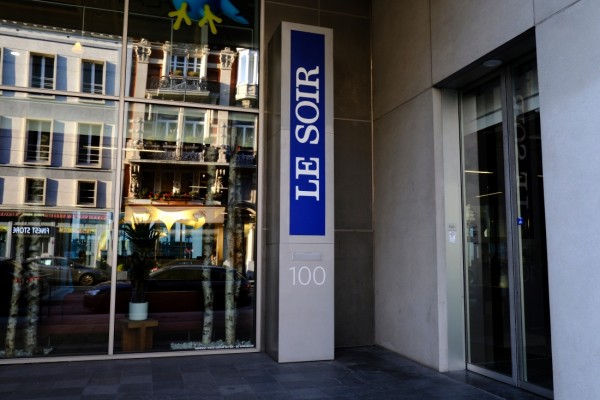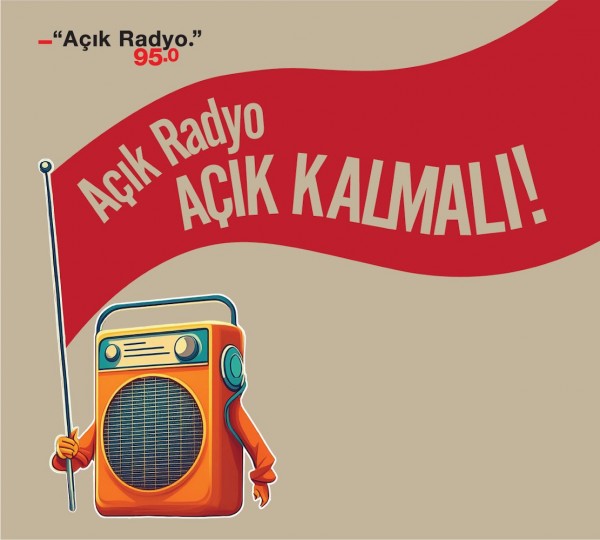The Serbian media is not dominated by traditional oligarchs as such, but rather by individuals that, with state backing, have become influential media moguls. These figures have successfully acquired some of the country’s leading radio, television, and print outlets, as well as printing houses, media agencies and the rights to foreign magazines and outlets. A prime illustration of this phenomenon is Igor Žeželj, a previously relatively unknown figure who, through close dealings with the state, has become one of the most prominent media owners in Serbia. His success is largely due to various murky business partnerships with state-owned Telekom Srbija. According to various reports, the media that Žeželj has acquired, including prominent tabloid Kurir, consistently publish government propaganda and disinformation, praising President Aleksandar Vučić and the ruling Serbian Progressive Party (SNS) and attacking their challengers
Rise in the media sector
Žeželj, who studied traffic engineering and took part in the 1997 student protests against then-president Slobodan Miloševic, began his career as assistant director of the parking service, a state agency responsible for public garages and car parks. In June 2004, Žeželj assumed ownership and leadership of Wireless Media, an IT and digital services firm. Shortly thereafter, Wireless Media entered into a strategic partnership with Telekom Srbija, the state-owned telecommunications company, to establish Serbia’s inaugural WAP (mobile-friendly) portal, Mondo. In 2005, Mobile Telephony of Serbia (owned by Telekom Srbija) launched Mondo.rs, a comprehensive news, sports, and entertainment web portal. This marked Žeželj’s inaugural venture into the news industry.
The question of who controlled Mondo was unclear to the public until 2018, when ownership was transferred from Telekom Srbija to “Mondo Inc,” a company owned by Žeželj’s Wireless Media. However, it is probable that Žeželj had been the indirect owner of Mondo all along, as investigative media revealed that Wireless Media and Mondo, while it was part of Telekom Srbija, were and remain registered under the same address and telephone number. When asked about the transfer of ownership in 2019, Žeželj said that Mondo was a joint commercial partnership with Telekom Srbija. While the monetary value of this partnership was not made public, Marinika Tepić, vice president of the opposition Freedom and Justice Party, claimed in August 2020, having purportedly obtained a leaked contract, that Telekom Srbija had simply given Mondo to Žeželj, growing the value of Žeželj’s assets almost overnight from €2 million to €40 million euros
According to investigative outlet Vreme, this transaction enabled Žeželj (through Mondo Inc) to acquire Adria Media Group in 2018, an entity with an extensive portfolio of media outlets across Serbia and the Balkans. This included the nation’s most prominent tabloid, Kurir, along with its online and television iterations. Media watchdogs and the political opposition have suggested that Telekom Srbija’s partnership with Žeželj was a strategic move by the state aimed at gaining influence over Kurir, which was at the time independent and critical of President Vučić.
In 2023, Adria Media Group and Wireless Media were merged into one entity, Wireless Media Group. As of October 2023, largely due to the acquisition of Adria, Žeželj owns 32 digital media, eight print media and three television channels. This includes:
- Print dailies: Kurir (audience share of 12.43 per cent)
- Cable TV: Kurir TV
- Online portals: kurir.rs, espreso.rs, mondo.rs, elle.rs, nationalgeographic.rs, euractiv.rs (over 1,291,205 daily users)
- Print magazines: Elle, Elle dekor, Sensa, Lepa I srećna, National Geographic, Wanted!
A reliable pro-government voice
Žeželj’s association with state-owned entities and the ruling SNS party, and his reliance on their support for his other business interests to succeed, have raised concerns about the independence of his media ventures. Žeželj’s businesses have closely cooperated with Telekom Srbija since 2004 under an undisclosed contract. This includes the transfer of the ownership of Mondo, which enabled him to finance the purchase of Adria Media Group, and more recently, the awarding of a €60 million contract by the Ministry of Finance to Žeželj’s Wireless Media and Telekom Srbija for the development of an information system for public sector salary calculations. It has been reported that this contract may have exceeded the market price by up to 2000 times. (In a comment provided to IPI, Wireless Media Group said it disputed that assertion, saying the contract was awarded through an open public procurement process and that the value of the public procurement “is subject to the fulfillment of contractual obligations”.)
Furthermore, the Center for Investigative Journalism of Serbia (CINS) has disclosed that Wireless Media has received numerous contracts to promote local authorities on digital platforms since 2017. CINS said that these state-funded campaigns amounted to “political propaganda” primarily benefiting SNS local officials, with campaigns predominantly coinciding with election seasons. (For its part, Wireless Media Group told IPI that the purpose of these projects was “not the promotion of a party or personality” but rather “improving communication with citizens and greater transparency in the work of city administrations”.)
It comes as no surprise that media outlets under Žeželj’s ownership display a pronounced pro-government bias. Following the acquisition of Kurir by Adria Media Group, the Balkan Investigative Reporting Network (BIRN) stated that “it is hard to find a text critical of the current Serbian president”. A study by Serbia’s Crime and Corruption Reporting Network, KRIK, pointed out that Kurir consistently portrayed the political opposition and its leaders negatively while maintaining a favourable stance toward President Vučić and Russian President Putin. An EU report from 2021 accused Kurir of engaging in state-sponsored disinformation campaigns. The South East European Network for Professionalization of Media in 2020 refers to Kurir as a “champion” of spreading disinformation and hate speech” and a 2023 report by the Balkan Free Media Initiative finds that Kurir regularly features “pro-government propaganda, particularly Kosovo-related disinformation.”
Due to its editorial policy and links to the state, Twitter (now X) labelled Kurir, alongside various other Serbian outlets, as “state affiliated” in August 2021. Then-Twitter’s definition of “state affiliated” is “those media where the state exercises control over editorial content through financial resources and direct or indirect political pressures”.
Following Mondo’s acquisition of the rights to operate Euractiv.rs – the Serbian website of the pan-European news outlet Euractiv – in 2022, the digital news channel regularly echoed official communications about domestic news and lacks any reporting on practices and policies that undermine Serbia’s EU orientation and reforms. (Euractiv has since reviewed its relationship and announced plans to end the agreement with Mondo.) The online portals of Kurir, Mondo, and Espresso regularly feature promotional campaigns of SNS-controlled local authorities run by Wireless Media.
Just one example
Igor Žeželj’s rise as a media magnate, backed by state entities, underscores the concerning state influence in Serbian media ownership. Žeželj’s success hinged on his collaboration with state entities, particularly Telekom Srbija, enabling him to amass considerable assets and influential media outlets. In return, these outlets have demonstrated a clear pro-government editorial policy.
Žeželj’s story is not an isolated case. In December 2018, Telekom Srbija acquired a cable operator company from Srđan Milovanović for €195 million. Immediately after, Milovanović, who is the brother of a high-ranking SNS official, acquired the Antena Media Group for €180 million, including TV channels B92 and TV Prva. Despite persistently violating the ethics code of Serbia’s Press Council, both channels were awarded a free-to-air licence by the media regulator REM in 2022, allowing them to be accessible for free to Serbia’s population.
The 2022 European Parliament Report on Serbia raised concerns about Telekom Srbija and “any possible state financing of Telekom Srbija, which gives the company an unfair competitive advantage and contributes to the declining condition of the independent media in Serbia.”
Žeželj and Milovanović are two key examples of media owners in Serbia who have benefitted from close collaboration with state entities and who have played a central role in the concentration of media in the country by pro-government voices.
In a comment provided to IPI following publication of this article, Wireless Media Group said it rejected the view that its partnership with Telekom Srbija was “murky”, stating that its business partnerships are “completely transparent and in accordance with the law and best business practices” in Serbia. It said its partnership with Telekom Srbija represented a good business decision for both sides, was controlled by various auditors, and was based solely on market principles. Wireless Media Group also insisted that the media outlets in its portfolio strive to work with “top notch ethical and media standards, with objectivity and a timely and precise spread of information to the public as our core values”. It said that it had improved ethical standards in its media and maintained that Kurir in particular had evolved in the last five years into “a mainstream media outlet with a strong emphasis on ethical reporting”.
_________________
This article was updated on August 19, 2024 to include comment from Wireless Media Group.
This series on the impact of media owners with cross-sectoral business interests on the media landscape in Central and Eastern Europe is supported with funding from the Friedrich Naumann Foundation for Freedom (FNF).


